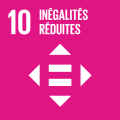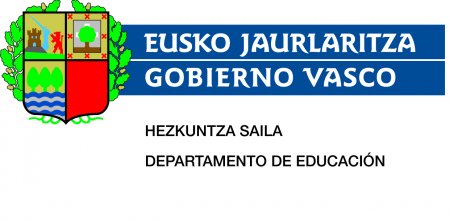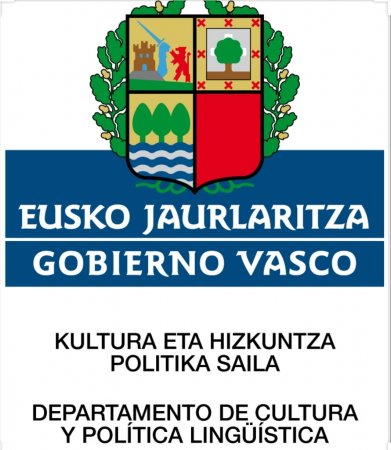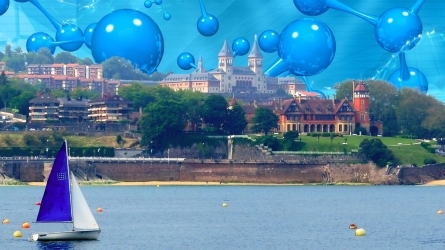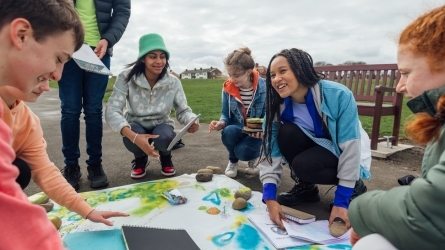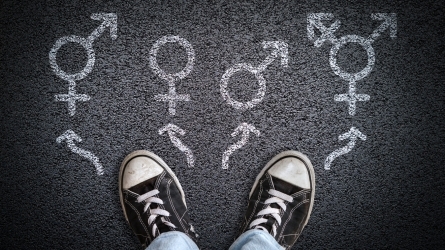
Genero identitateak ulertzen. Gizarte eta hezkuntza ikuspegietatik hurbilketa
Hiru alderditatik landuko da gaia: generoa gizarte eraikuntza dela ulertarazi, trans identitateek dituzten oztopoak identifikatu, eta zailtasunei aurre egiteko proposamenak gauzatu.
Description
Genero identitate ezberdinetara hurbilketa egin nahi da ikastaro honen bidez, betiere hezkuntza eta gizarte ikuspegietatik. Horretarako, hiru ataletan banatu da ikastaroa:
- Zer da genero identitatea? Atal honetan, generoa gizarte eraikuntza dela ulertzea bilatuko da. Horretaz gain, genero identitateak historian zehar izandako bilakaera azalduko da, eta garai ezberdinetako genero identitate ez normatiboen adibideak aurkeztuko dira.
- Trans identitateek modu osoan eta askean garatzeko aurkitzen dituzten oztopoak: Saio honen helburua trans identitateek egunerokotasunean dituzten oztopo eta zailtasunak identifikatzea izango da. Hasiera batean eskola eremuan jarriko da begirada (guztiok ematen ditugulako urteak hezkuntza eremuan eta honek duen indar sozializatzaileagatik), ondoren beste zenbait eremutara hedatuz: familia, egoera geopolitikoa, MST, etab.
- Etorkizunari begira: Azken saio honetan, esperientzia errealak ezagutzeaz gain, eremu ezberdinetan aurkitu daitezkeen oztopo edo zailtasunei aurre egiteko edota irtenbidea bilatzeko proposamenak egingo dira.
Objectives
Genero identitatea zer den ulertzea.
Trans errealitateak ezagutzea.
Trans pertsonek egunerokoan dituzten oztopo ugariez jabetzea.
Trans errealitateetan eragiten duten faktoreak ezagutzea.
Gizarte aldaketa bat bultzatzeko asmoz, eremu ezberdinetan aurrera eraman daitezkeen aldaketak/ekimenak proposatzea.
Activity directed to
- All public
- University student
- Students not from university
- Teachers
- Professionals
In collaboration with
Program
26-06-2025
Erregistroa / Registro
Presentation by the Director of the activity
Aurkezpena
- Olatz Etxebarria Perez de Nanclares | UPV/EHU
“Aurre-ezagutzatik jakintza berriak eraikitzen“
- Olatz Etxebarria Perez de Nanclares | UPV/EHU
“Genero Identitatearen Ibilbide Historikoa“
- Olatz Etxebarria Perez de Nanclares | UPV/EHU
Break
“Genero Identitatearen aztarnak jarraitzen“
- Olatz Etxebarria Perez de Nanclares | UPV/EHU
“Genero Identitatea garapen etapetan“
- Olatz Etxebarria Perez de Nanclares | UPV/EHU
27-06-2025
Erregistroa + Lehenengo saioaren inguruko hausnarketa + Eguneko plangintza
“Trans pertsonak eta familiak“
- Beatriz Sever Egaña
“Trans pertsonek eremu ezberdinetan aurkitu ditzaketen oztopoak identifikatzen“
- Olatz Etxebarria Perez de Nanclares | UPV/EHU
Break
Round table: “Trans errealitateetara gerturaketa, Trans pertsonen testigantzak lehen pertsonan“
- Beatriz Sever Egaña
- Olatz Etxebarria Perez de Nanclares | UPV/EHU
- Trans pertsonen testigantzak lehen pertsonan
Cierre
Directors

Olatz Etxebarria Perez de Nanclares
EHU
She is an Assistant Professor and Researcher in the Department of Language and Literature Didactics at the University of the Basque Country. She holds a PhD in Psychodidactics: Educational Psychology and Specific Didactics from the same university, with an international research stay at Harvard University. She has a BA in Teaching and a Bachelor's Degree in Elementary Education, along with three specializations: Physical Education, English as a Foreign Language, and Special Education. To further deepen her expertise in Special Education, she completed a Master's Degree in School Psychology and Counseling. With 17 years of teaching experience across various educational fields, she has worked in the Basque Country, the United States, and Asia. Her primary research interests include Gender Identity, Special Educational Needs, Multilingual and Multicultural Educational Environments, and Physical Education. She has published in high-impact scientific journals and has presented her work at national and international conferences. A strong advocate for diversity and true inclusion, she is committed to fostering equitable and inclusive educational environments.
Speakers

Olatz Etxebarria Perez de Nanclares
EHU
She is an Assistant Professor and Researcher in the Department of Language and Literature Didactics at the University of the Basque Country. She holds a PhD in Psychodidactics: Educational Psychology and Specific Didactics from the same university, with an international research stay at Harvard University. She has a BA in Teaching and a Bachelor's Degree in Elementary Education, along with three specializations: Physical Education, English as a Foreign Language, and Special Education. To further deepen her expertise in Special Education, she completed a Master's Degree in School Psychology and Counseling. With 17 years of teaching experience across various educational fields, she has worked in the Basque Country, the United States, and Asia. Her primary research interests include Gender Identity, Special Educational Needs, Multilingual and Multicultural Educational Environments, and Physical Education. She has published in high-impact scientific journals and has presented her work at national and international conferences. A strong advocate for diversity and true inclusion, she is committed to fostering equitable and inclusive educational environments.

Beatriz Sever Egaña
Bea Sever sexologoa
Bea Sever Egaña kazetaria, sexologoa eta Suizidologian aditua da. Chrysallis EH eta ondoren Naizen elkarteko kidea da. Naizeneko arreta arduradun bezala, bere seme-alaben errealitatea ulertzeko prozesuan familien bide laguna izateaz gain, arlo guztietako profesionalak laguntzen ditu: irakasleak, medikuak, hezitzaileak, begiraleak, kirol arlokoak… Nazioarteko oihartzuna izan zuen “Zakila duten neskak eta bulba duten mutilak” kanpaina eraman zuen. Transexualitateari buruzko formazioak ematen ditu eta jardunaldi, kongresu eta antzekoetan parte hartu ohi du. Hainbat lege eta protokoloen lan-mahaietako partaidea izan da. “Tránsitos” liburuaren kolaboratzailea izan da.

Trans pertsonen testigantzak lehen pertsonan
Registration fees
| Face-to-face | Until 26-06-2025 |
|---|---|
| 74,00 EUR | |
| 63,00 EUR | |
| 52,00 EUR | |
| 25,00 EUR | |
| 63,00 EUR | |
| 63,00 EUR | |
| 63,00 EUR | |
| 63,00 EUR | |
| 63,00 EUR |
| Live online | Until 26-06-2025 |
|---|---|
| 74,00 EUR | |
| 63,00 EUR | |
| 52,00 EUR | |
| 25,00 EUR | |
| 63,00 EUR | |
| 63,00 EUR | |
| 63,00 EUR | |
| 63,00 EUR | |
| 63,00 EUR |
Venue
Letren fakultateko Gradu Aretoa
Unibertsitateko Ibilbidea, 5. 01006 Vitoria-Gasteiz
Araba
Sustainable development goals
Agenda 2030 is the new international development agenda approved in September 2015 by the United Nations. This agenda aims to be an instrument to favour sustainable human development all over the planet, and its main pillars are the eradication of poverty, a reduction in equality and vulnerability and fostering sustainability. It is a unique opportunity to transform the world up to 2030 and guarantee human rights for all.

3 - Good health and well-being
Guarantee a healthy life and foster the well-being of all people of all ages. Key issues: universal healthcare coverage, sexual and reproductive health, reduction in the number of road accident casualties, pollution and chemical products, reduction in maternal and neonatal mortality, the end of epidemics such as AIDS, combating hepatitis and other water-borne diseases, drug and alcohol prevention, control of tobacco.
More information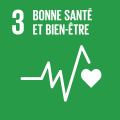
4 - Quality education
Guarantee quality education that is inclusive and equitable and foster opportunities for lifelong learning for everyone. Key issues: free-of-charge, equitable and quality education, access to higher education and training on an equal basis, education for sustainable development, suitable education centres for persons with disabilities, and safe, non-violent and efficient learning environments.
More information
5 - Gender equality
Achieve gender equality and empower all women and young girls. Key issues: the end of all forms of discrimination and violence, recognition of unpaid care and domestic work, shared responsibility, equal opportunities, full and effective participation in reproductive rights, equal rights vis-à-vis economic resources, access to land and other assets and ownership.
More information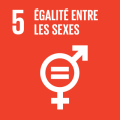
10 - Reduced inequalities
Reduce inequality in countries and between them. Key issues: promotion of the social, economic and political inclusion of all people, equal opportunities, fiscal, wage and social protection policies to favour equality, migration and the policies that affect it, official assistance for the development, regulation and supervision of world institutions and markets.
More information